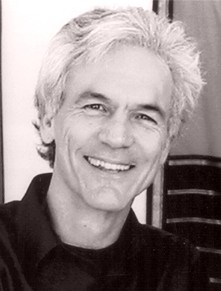A Quote by Martin Rees
Most educated people are aware that we are the outcome of nearly 4 billion years of Darwinian selection, but many tend to think that humans are somehow the culmination. Our sun, however, is less than halfway through its lifespan. It will not be humans who watch the sun’s demise, 6 billion years from now. Any creatures that then exist will be as different from us as we are from bacteria or amoebae.
Related Quotes
Let me put it in a rather larger picture framework. Let's go to the longest time frame, the time frame of the life of our sun. As a star, our sun is about halfway through its life cycle. In the long run, we only have a couple of billion more years likely that we can inhabit this planet. By that time, we're going to have to be out of here before our sun dies. Now, I don't think we need to wait that long, and we certainly shouldn't wait that long. At the moment, we are not on a sustainable path.
Lots of people think, well, we're humans; we're the most intelligent and accomplished species; we're in charge. Bacteria may have a different outlook: more bacteria live and work in one linear centimeter of your lower colon than all the humans who have ever lived. That's what's going on in your digestive tract right now. Are we in charge, or are we simply hosts for bacteria? It all depends on your outlook.
People's minds are polluted by these dark pictures of the future from Hollywood: "The Terminator," the Skynet, "The Matrix." It's world where there's no room for humans, or they have to fight against the machines. I think it's just a way, way, way, way in the future. Is it going to happen? I don't know. For me, these debates are not similar, but they resemble debates about how the sun will turn into a supernova in 4 to 5 billion years. Frankly, I don't care.
Throughout all of human history we have consumed the natural world. All creatures do. Birds do. Fish do. Earthworms do. We consume the natural world as a source of our survival. But no creature has ever consumed at the scale that humans have, and now there are seven billion of us. I think the good news is that a large percentage of those seven billion minds can work to make better decisions.
If God wanted to create life and create humans, it would be slightly odd that he should choose the extraordinarily roundabout way of waiting for 10 billion years before life got started and then waiting for another 4 billion years until you got human beings capable of worshipping and sinning and all the other things religious people are interested in.
Because we humans are big and clever enough to produce and utilize antibiotics and disinfectants, it is easy to convince ourselves that we have banished bacteria to the fringes of existence. Don't you believe it. Bacteria may not build cities or have interesting social lives, but they will be here when the Sun explodes. This is their planet, and we are on it only because they allow us to be.





























